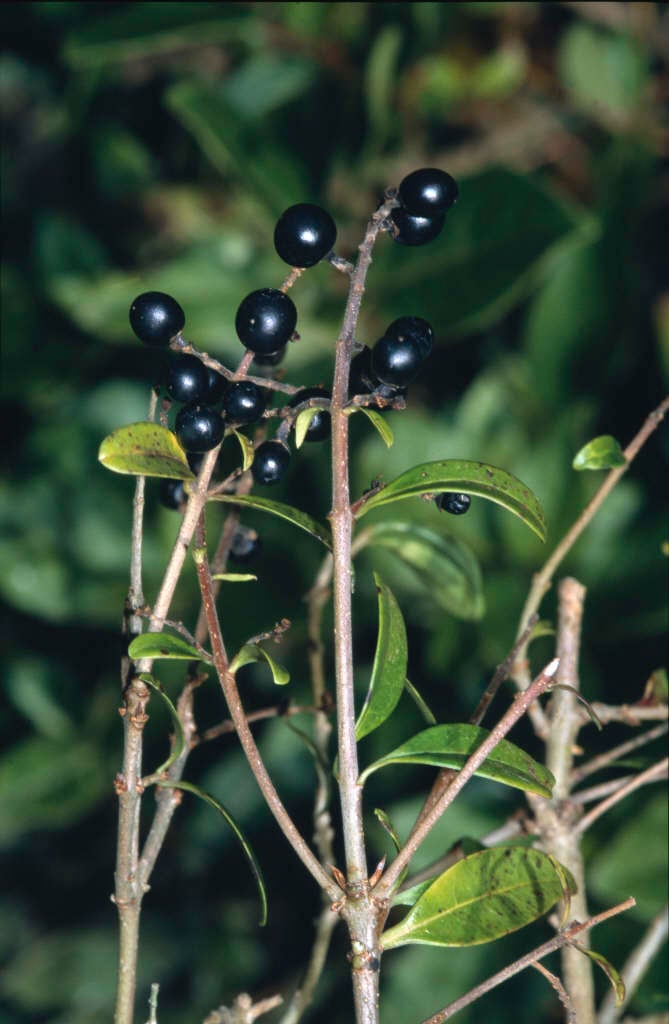Ligustrum vulgare
wild privet
A bushy, deciduous or semi-evergreen shrub with dark green, lance-shaped leaves and terminal panicles of small, white, pungently-scented flowers in summer, followed by small, shining black berries
Size
Ultimate height
2.5–4 metresTime to ultimate height
10–20 yearsUltimate spread
2.5–4 metresGrowing conditions
Moisture
Well–drainedpH
Acid, Alkaline, NeutralColour & scent
| Stem | Flower | Foliage | Fruit | |
| Spring | Green | |||
|---|---|---|---|---|
| Summer | White | Green | ||
| Autumn | Green | Black | ||
| Winter |
Position
- Full sun
- Partial shade
Aspect
South–facing or West–facing or East–facing or North–facing
Exposure
Exposed or Sheltered Hardiness
H6Botanical details
- Family
- Oleaceae
- Native to GB / Ireland
- Yes
- Foliage
- Deciduous
- Habit
- Bushy
- Potentially harmful
- Harmful if eaten. Wear gloves and other protective equipment when handling Pets (dogs): Harmful if eaten. For further information and contact numbers regarding pets, see the HTA guide to potentially harmful plants
- Genus
Ligustrum can be decidous or evergreen shrubs or small trees, with simple, entire leaves and panicles of small, often unpleasantly scented white flowers in spring or summer, followed by black or deep purple berries
- Name status
Correct
- Plant range
- Europe N. Africa SW Asia
How to grow
Cultivation
Grow in any well-drained soil in sun or partial shade, often found growing wild on chalky soils. Good for hedging
Propagation
Propagate by seed, semi-hardwood and hardwood cuttings
Suggested planting locations and garden types
- Coastal
- Cottage and informal garden
- Wildflower meadow
- Wildlife gardens
- Hedging and screens
Pruning
Pruning group 1; clip hedges twice in summer
Pests
May be susceptible to privet aphid, scale insects, leaf-mining moths and Thrips
Diseases
May be susceptible to leaf spots, honey fungus and Verticillium wilt
Get involved
The Royal Horticultural Society is the UK’s leading gardening charity. We aim to enrich everyone’s life through plants, and make the UK a greener and more beautiful place.
